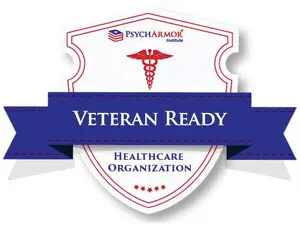CHILDREN’S WEEK – The Gift of Resiliency
In the middle of February, the country thinks about love and relationships as they prepare to celebrate Valentine’s Day. During this same event, somewhat less popular then Valentine’s Day, begins the week that honors the resiliency and survival of children who have grown up in unhealthy families affected by alcohol and other drugs. Seabrook recognizes this week. This Week is known as Children Of Alcoholics week and it will begin on February 8th and end on February 14th. In cities and towns across America, and even other countries, survivors and supporters join together to celebrate the strength and success of those who have done the work to heal. For forty years the program and philosophy of Seabrook has been about healthy families. We know that for every patient finding their way to recovery there is a family involved. Families that include parents, siblings, spouses and most importantly children. Children who are growing up in a dysfunctional family where drugs and alcohol are ever present. The presence of these substances is causing havoc and damage. It has been shown that there is not a single citizen of this the United States of America that does not know of someone, or is related to someone and/or is themselves struggling with substance dependency. One out of every five Americans has grown up with a relative dependent upon substances. Children of alcoholic/substance dependent parents are four times more likely to become alcoholic/substance dependent themselves. And if they do not become dependent upon substances, they have experienced some form of neglect or abuse and tend to marry those with dependency issues. They tend to become involved in unreliable relationships that mirror their family of origin. The neglect and abuse they experienced result in a set of nearly predictable characteristics. These characteristics include a tendency to isolate and being uncomfortable with interacting with other people, particularly with those in authority. Standing up for ourselves results in a guilt reaction when we assert ourselves so it is just easier to give in. In a need to protect ourselves we become people pleasers resulting in a loss of who we are. It is an overdeveloped sense of responsibility that makes us more concerned with the welfare of others than ourselves. Any criticism is perceived as a personal threat. We develop compulsive personalities in order to ward off our fear of abandonment. This fear makes us dependent upon the approval of others. We react rather than take healthy action. We live more comfortably as a victim. We bury our feelings. Love becomes confused with pity and falling for people we can save. Chaos has become so much of our makeup that we prefer and even contribute to constant upset. However what we don’t realize is that this painful and traumatic history has resulted in the most amazing fact of all. As we begin to heal and do the work to resolve our issues many discoveries are in store. The discovery of the quality of resiliency. Resilience is a remarkable quality. A quality that allows survivors to come back from their trauma stronger than ever. The ability to overcome failure. Resiliency is a blessing. This blessing can be developed and learned by anyone. It does not mean that resilient person doesn’t have distress or difficult times. And the path often involves a great deal of emotional distress. The solution is of course therapy, a recovery program, support as well as resolve and bravery. It takes following the steps designed in the 12-step program to bring you to recovery. We begin by accepting our powerlessness over alcohol and other substances even if we never used them. Then we come to believe in that power greater then ourselves and make that first difficult decision to turn our will and our lives over to that power, which is not easy for an adult child. We move on to inventory our characteristics and begin the work to build our resiliency and regain a healthy life full of purpose and healthy relationships. Our first hard work begins with fearlessly and morally looking at those relationships that hurt us. It will take time as we work through our fear and let go of our resentments only to discover that these sick people were responsible not only for our pain but were in a way responsible for the healthy people we will become. We discover that it is our ability to love and our ability to forgive that serve us as weapons that prevent us ever becoming hurt and isolated and afraid again. So consider your history, and if you identify with anything presented here know that you are not alone. That there is help and a solution. You are capable and resilient and stronger than most people. For further information that can help you please visit the Seabrook website: www.seabrook.org and the website of the National Association for Children of Alcoholics: www.nacoa.org
Stephanie Loebs, RN, BSN
Director of Medical Services at Seabrook



